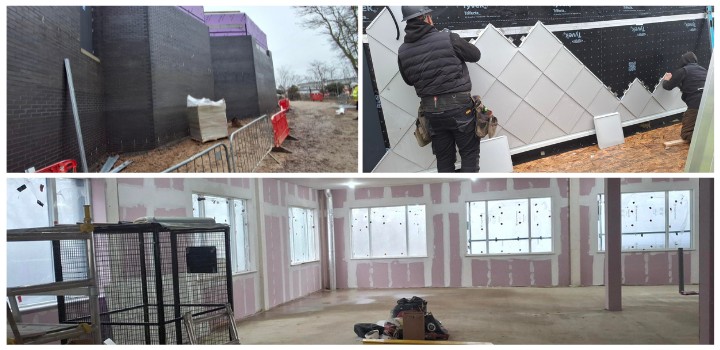Technology-assisted therapy for children and young people is an effective alternative to traditional face-to-face therapy
By: Communications

-
University of East Anglia (UEA) researchers compared the effectiveness of technology-assisted Cognitive Behavioural Therapy (CBT) with traditional face-to-face CBT for children and young people
-
The results revealed that CBT delivered through apps, online software, video games, phone calls and video conferencing is just as effective as face-to-face CBT for treating anxiety and depression for young people and children
-
The study highlights the potential of technology-assisted CBT to expand access to effective mental health treatment, particularly following increased need due to the Covid-19 pandemic
Using technology to deliver therapy for children and young people is as effective as traditional face-to-face therapy, according to new research.
The University of East Anglia-led study highlights the potential for using technology to expand access to mental health treatment, particularly following an increase in need due to the Covid-19 pandemic.
Cognitive Behavioural Therapy (CBT) is a widely recognised and effective treatment for a range of mental health difficulties, including anxiety and depression in children and young people.
Over the past two decades, several innovative approaches have emerged to deliver CBT through technology.
This includes apps, online software, and video games which deliver CBT directly through technology, as well as approaches which retain a human therapist via phone calls or video conferencing.
While these technology-assisted versions have shown promise, there has been limited research directly comparing their effectiveness to traditional face-to-face CBT.
Lead author Dr Leonardo Bevilacqua, of UEA’s Norwich Medical School, said: “Our findings suggest that technology-assisted CBT can be a viable alternative to traditional face-to-face CBT for some children and young people.
“This is especially relevant given the increasing demand for mental health services following the Covid-19 pandemic."
The research looked at multiple studies which examined various forms of technology-assisted CBT, such as video conferencing and online platforms. Of these, seven studies focused on anxiety in children and young people, and another seven on depression.
The results revealed that technology-assisted CBT is just as effective as face-to-face CBT for treating anxiety and depression in this age group.
Co-author Dr Peter Beazley, of Norwich Medical School, said: “The study highlights the potential of technology-assisted CBT to expand access to effective mental health treatment for children and young people.
“Future research should focus on identifying the most cost-effective delivery methods to ensure the best outcomes for patients.”
The research was led by the University of East Anglia with support from researchers at University College London (UCL).
Future studies should look closer at if technology-assisted CBT is as effective for children as it is for adolescents, and if there is any difference in effectiveness for males or for females.
‘Effectiveness of technology-assisted vs face-to-face cognitive behavioural therapy for anxiety and depression in children and young people: A systematic review and meta-analysis' is published in the journal Clinical Child Psychology and Psychiatry (CCPP).
Related Articles

New study reveals links between social anxiety, depression and suicidal thoughts in adolescents
Adolescents who experience higher levels of social anxiety symptoms are more likely to report increased suicidal thoughts and other depressive symptoms two years later, according to new research.
Read more
Research reveals link between menstrual cycles, emotions, and sleep patterns in women
Women experience disruptions in their sleep patterns and report heightened feelings of anger in the days leading up to their period, according to new research.
Read more
UEA’s new high‑tech anatomy suite on schedule to open to students in September 2026
The University of East Anglia’s new high‑tech anatomy suite is on track to open to students in September 2026.
Read more